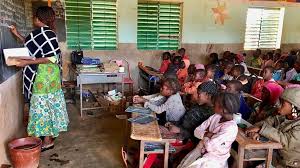In 2024, more than 75,000 girls were forced to leave schools, according to an official from the Ministry of Education, at a panel discussion on “girls’ school dropout and remedial systems” as part of the project for the empowerment of women and the demographic dividend in the Sahel, better known by its English acronym, SWEDD.
According to Inoussa Sissao, head of a section at the Department for the Promotion of Inclusive Education, Girls’ Education and Gender (DPEIFG), the reasons for girls dropping out of school include parental poverty, pregnancy, early marriage and the ongoing security crisis.
“Girls and boys who do not attend school not only see their education compromised, but also run a greater risk of violence, exploitation, forced marriage and even recruitment by armed groups,” UNICEF Burkina
Faso said.
To address this, the government has profiled out-of-school students and opened alternative emergency or double-shift classes to provide girls with temporary and flexible learning spaces.
“These types of classes aim to provide a basic education, maintain a certain morality in girls’ lives and prevent them from dropping out of school,” Mr. Sissao says.
In 2023, a first phase of profiling out-of-school girls in Burkina Faso recorded more than 60,000 pupils who had dropped out of school.
As part of the SWEDD project, many of these girls were taken into care and given training.
On 2nd October 2023, 6,149 schools were closed due to violence and insecurity. More than 31,000 teachers and more than a million children could no longer return to school, fearing for their safety.
Meanwhile, at least 230 schools were currently serving as temporary shelters for more than 52,000 internally displaced people (IDPs).
DS/ac/fss/as/APA


